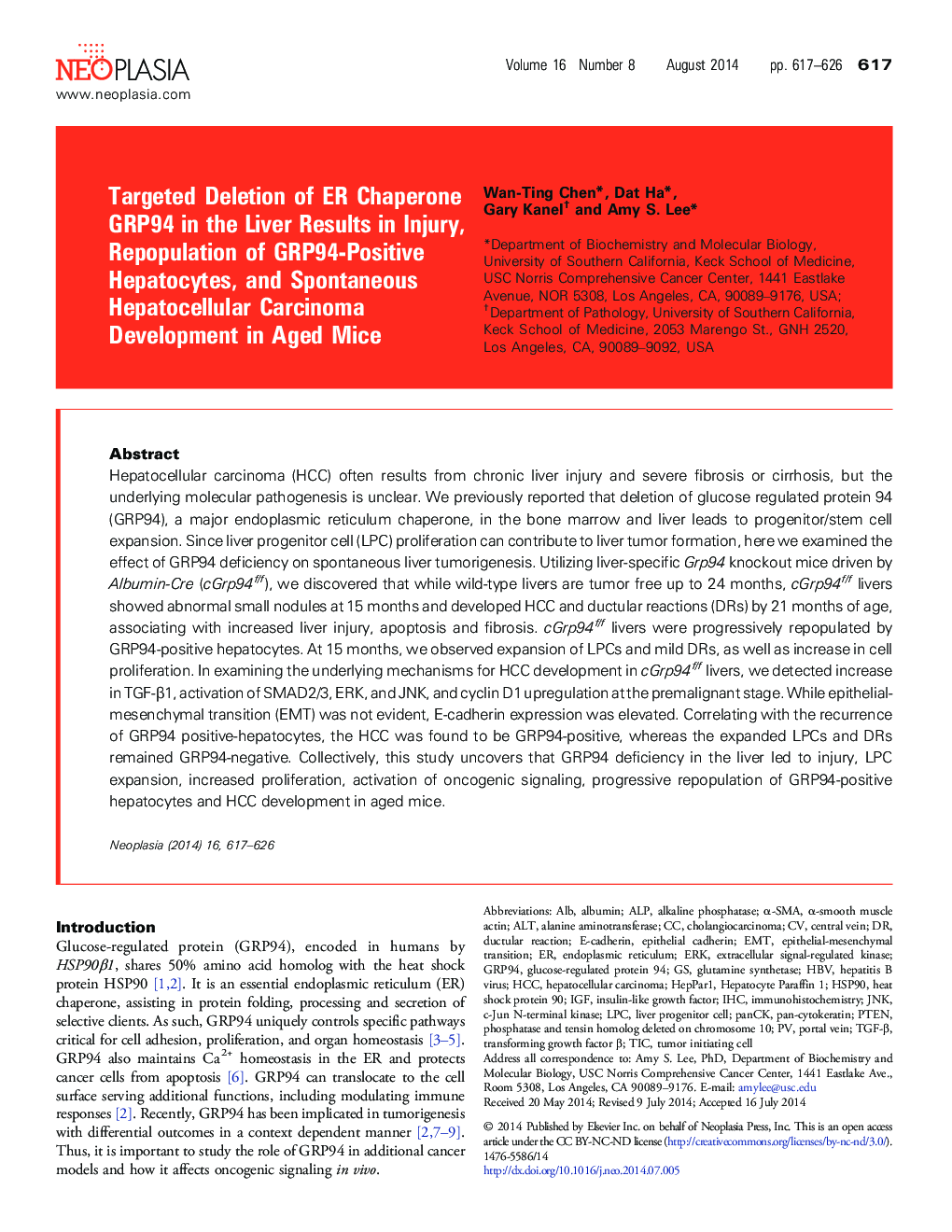| کد مقاله | کد نشریه | سال انتشار | مقاله انگلیسی | نسخه تمام متن |
|---|---|---|---|---|
| 2151145 | 1089965 | 2014 | 10 صفحه PDF | دانلود رایگان |

Hepatocellular carcinoma (HCC) often results from chronic liver injury and severe fibrosis or cirrhosis, but the underlying molecular pathogenesis is unclear. We previously reported that deletion of glucose regulated protein 94 (GRP94), a major endoplasmic reticulum chaperone, in the bone marrow and liver leads to progenitor/stem cell expansion. Since liver progenitor cell (LPC) proliferation can contribute to liver tumor formation, here we examined the effect of GRP94 deficiency on spontaneous liver tumorigenesis. Utilizing liver-specific Grp94 knockout mice driven by Albumin-Cre (cGrp94f/f), we discovered that while wild-type livers are tumor free up to 24 months, cGrp94f/f livers showed abnormal small nodules at 15 months and developed HCC and ductular reactions (DRs) by 21 months of age, associating with increased liver injury, apoptosis and fibrosis. cGrp94f/f livers were progressively repopulated by GRP94-positive hepatocytes. At 15 months, we observed expansion of LPCs and mild DRs, as well as increase in cell proliferation. In examining the underlying mechanisms for HCC development in cGrp94f/f livers, we detected increase in TGF-β1, activation of SMAD2/3, ERK, and JNK, and cyclin D1 upregulation at the premalignant stage. While epithelial-mesenchymal transition (EMT) was not evident, E-cadherin expression was elevated. Correlating with the recurrence of GRP94 positive-hepatocytes, the HCC was found to be GRP94-positive, whereas the expanded LPCs and DRs remained GRP94-negative. Collectively, this study uncovers that GRP94 deficiency in the liver led to injury, LPC expansion, increased proliferation, activation of oncogenic signaling, progressive repopulation of GRP94-positive hepatocytes and HCC development in aged mice.
Journal: Neoplasia - Volume 16, Issue 8, August 2014, Pages 617–626